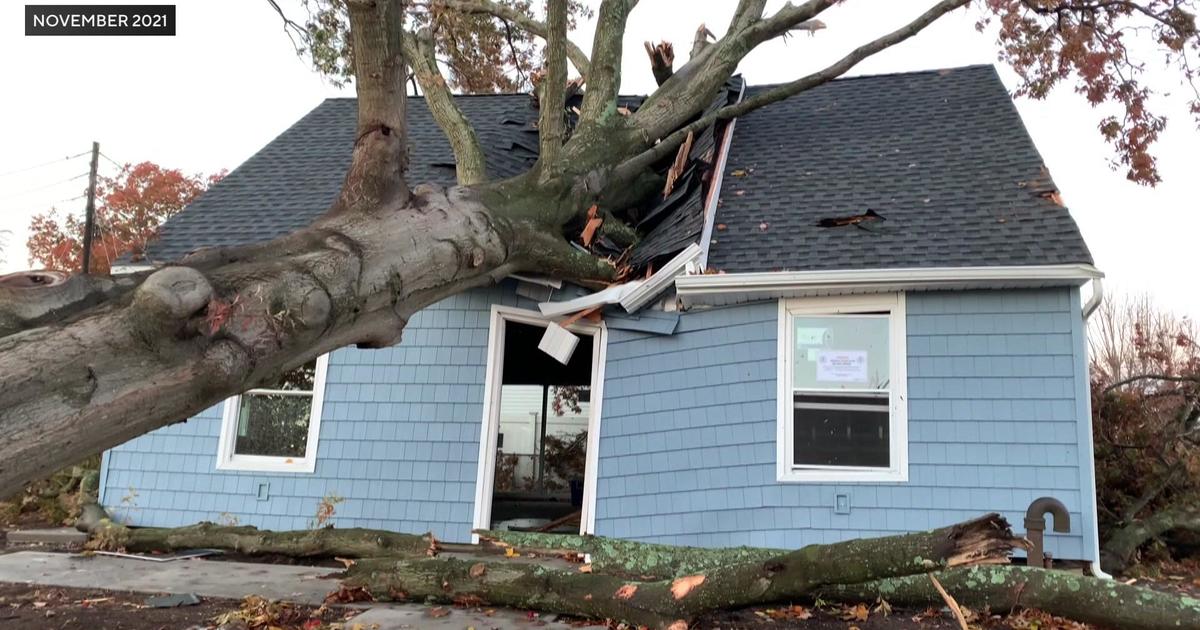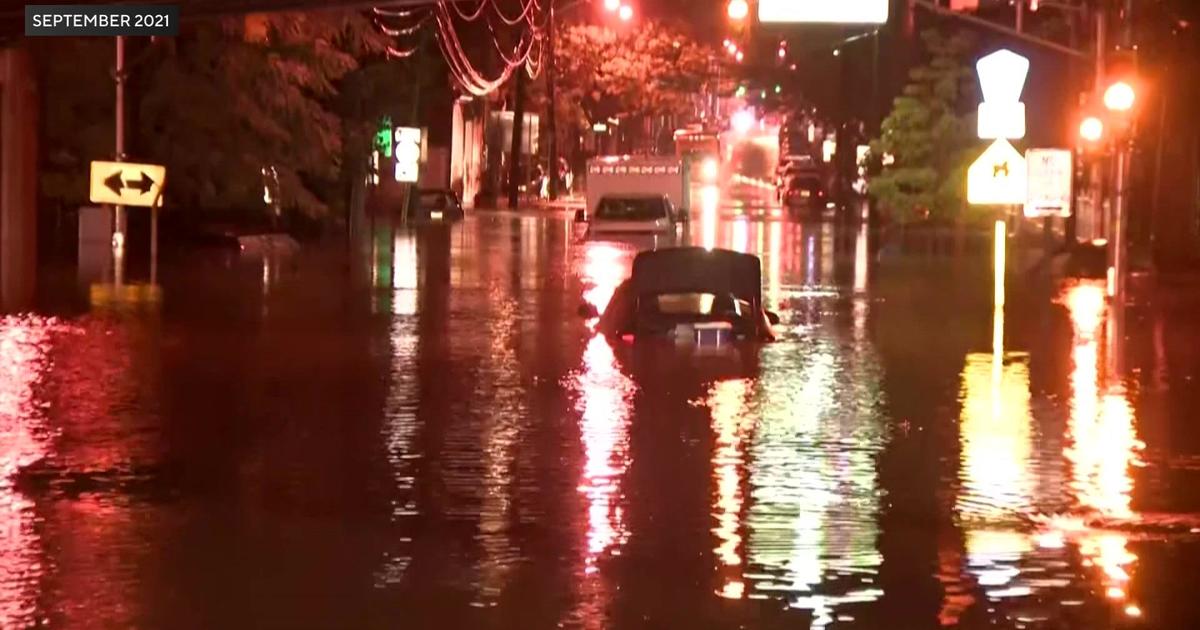Climatologist Mark Wysocki explains why flash floods and severe weather events are becoming more frequent
STONY POINT, N.Y. - In Rockland County, residents are starting to calculate their losses from the storm as cleanup efforts continue.
This comes as experts say massive storms like this one are only going to become more common.
Shane O'Flaherty watched as flood waters raged past his home on Cedar Flats Road in Stony Point. Most of his cars were out of harms way, but not his red truck.
"It tried to move my truck, but I tied it to a tree," O'Flaherty said.
It did carry a 2,000-pound concrete sewer cover down the block, and a dumpster from who knows where.
"I have a crater in my garden so I can't leave, 'cause I don't have a driveway, but I'm cleaning up," O'Flaherty said.
O'Flaherty said two feet of water filled his basement. He ripped up the carpet and salvaged what he could.
The Rockland County Highway Department worked Tuesday to repair the damage left in the wake of the raging flood.
"Most of our roads are open and clear right now. We're just doing a lot of shoulder work to stabilize sides of road," Ed Beatty, general foreman of the Rockland County Highway Department, said.
Foreman said the repairs are being repeated across state and local roads, too. Dumptrucks ditch rocks by the ton, and then a backhoe applies pressure to ensure a solid foundation for new blacktop.
"This is really giving more credence to the fact that our climate is changing," New York State Climatologist at Cornell University Mark Wysocki said.
Wysocki said as our global temperature warms, our atmosphere holds more water - and then unleashes it.
"If you raise its temperature one degree Fahrenheit, you can increase its capacity to hold water by four percent," Wysocki said.
Wysocki points out that since the early 1900s, global temperature increased by roughly 2.3 degrees.
"Which means our atmosphere now holds a little bit more than 8% water than it used to," Wysocki said.
Extreme rainfall events, like the one Sunday, which are are not unique to one season, hemisphere or country, are happening with much greater frequency.
"We're seeing a lot of one in 500, one in 100 events start to occur, like, one every 10 years,' Wysocki said.
The last time Cedar Flats Road required repair? After Floyd in '99.




